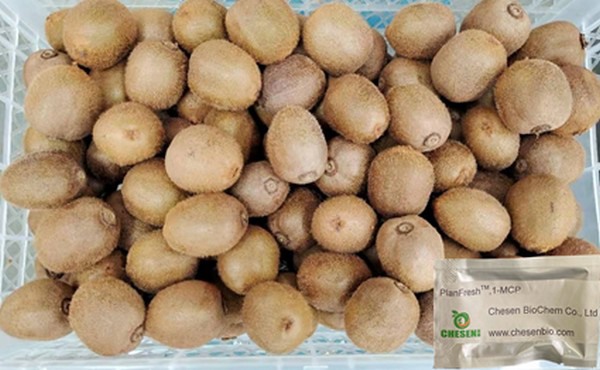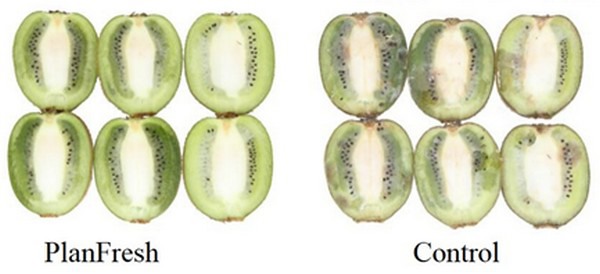The Kiwifruit is a kind of hyper-respiratory fruit, which has a physiological after-ripening period, and it is very sensitive to temperature and ethylene. If it is not processed in time after being harvested, the ethylene in the fruit will increase rapidly at room temperature, and the respiration will be significantly enhanced. After reaching the peak, the starch content will decrease, the pulp will become soft, the sugar content will increase, and then aging and decay will set in.
How mature the kiwi fruit is when harvested has an important impact on the quality of the fruit and how long it can be stored. Harvest the kiwi fruit too early, and the fruit will not fully develop, the quality remains poor, and the kiwi fruit can not survive storage very well. Harvest the fruit too late, and it will be fully matured and in good quality, but will easily soften and does not survive storage very well either.
In order to ensure that the kiwi fruit survives the storage period and maintains good product quality, kiwifruit is best harvested when the soluble solid content of the fruit is 6% to 7%. This kind of fruit is storage-resistant and has the best flavor after storage.

Kiwifruit should be pre-cooled before low-temperature storage, otherwise the storage performance will be seriously affected. Kiwifruit often maintains a high "field heat" during harvest, and the physiological activities such as breathing and metabolism are vigorous, which makes it easy for the kiwi fruit to ripen spontaneously.
Ethylene has a great influence on the storage tolerance of kiwi fruit. Under the condition of 0℃, even a small amount of ethylene (30ppb) will significantly accelerate the decaying progress after ripening, soften the flesh, and shorten the storage life. Therefore, it is necessary to treat the fruit with "1-MCP" preservative and store under low temperature conditions. After the warehouse is full, the "1-MCP" preservative should be used for fumigation in time to inhibit the release of ethylene and reduce the breathing intensity.

In addition to kiwi fruit, 1-MCP is also widely used on apples, pears, stone fruits, melons, mangos, dragon fruits, tomatoes, broccoli, other tropic fruits and vegetables as well as fresh flowers. Reasonable use of PlanFresh can effectively reduce the internal and external ethylene of fruits and vegetables, prolong the storage period and maintain freshness.
Chesen BioChem specializes in providing 1-MCP and various agrochemical sales services. At present, our 1-MCP products have not been registered in other countries, and we are actively looking for cooperators to register and promote 1-MCP in various places.
Chesen BioChem Co., Ltd
Cathy
Tel.: +86 181 3360 9421
Email:[email protected]
Website: www.chesenbio.com










